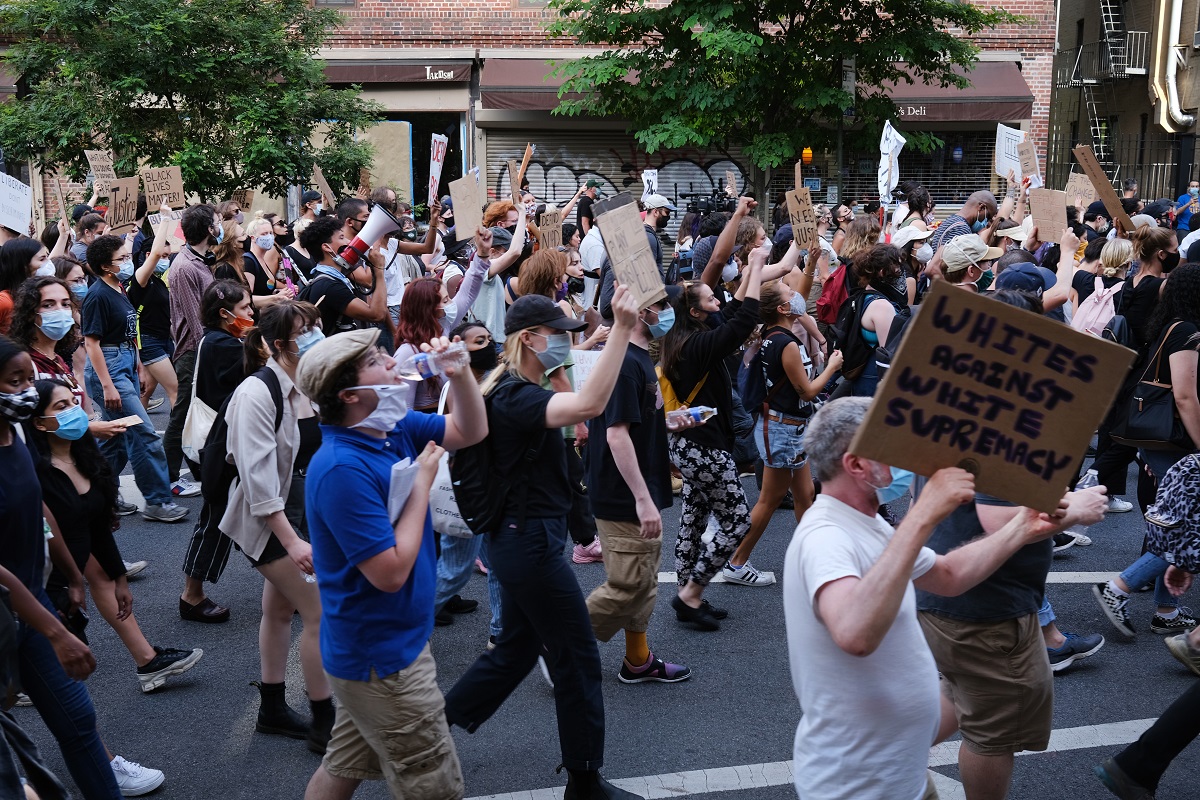Thousands of people took to the streets in the US city of Atlanta to protest against the death of another African-American man at the hands of a white police officer, with the victim’s family demanding justice and changes in police procedures and protocols.
The recent protests “March for Justice” proceeded peacefully outside the Georgia capital in downtown Atlanta to urge lawmakers to immediately confront and deal with systematic failures in the penal justice and electoral systems.
Advertisement
The march was convened by the National Association for the Advancement of Colored People (NAACP), and it began at the Richard Russell federal building with marchers making their way to the state capitol.
Rayshard Brooks, 27, was shot to death on June 12 while fleeing two police officers after struggling with them in a restaurant parking lot in Atlanta.
During the chase, Brooks was shot in the back by one of the officers and his death was ruled a homicide on Sunday by the Atlanta medical examiner.
The white officer who fired at Brooks has been identified as Garrett Rolfe, and he has been fired by the police department.
Atlanta police chief Erika Shields also resigned over the incident.
The demonstration comes as the Georgia General Assembly, which has been suspended since March due to the coronavirus pandemic, resumed its work.
Monday’s march was attended by several Democratic state lawmakers along with numerous black leaders and other personalities.
At the end of the protest, about 100 people blocked some of the streets in downtown Atlanta, although no violence or arrests were reported.
Brooks had been asleep in his car at a Wendy’s fast food restaurant drive-through late Friday, and employees called police to complain he was blocking other customers, an official report said.
The massive protests comes as the US faces a historic reckoning on systemic racism, with mass civil unrest ignited by the May 25 killing of another African American man, George Floyd, while in police custody.
Floyd died after a white Minneapolis police officer knelt on his neck for nearly nine minutes.
Protests which spread first around the country then the globe in the weeks since, have forced a conversation on the legacies of slavery, colonialism and white violence against people of color, as well as the militarization of police in America.
President Donald Trump is expected to sign an executive order on Tuesday to establish a national certification system and database so that excessive uses of force by police can be tracked and monitored.
Police and protesters clashed in numerous cities including Chicago and New York, with officers responding to projectiles with pepper spray while shop windows were smashed in Philadelphia.











